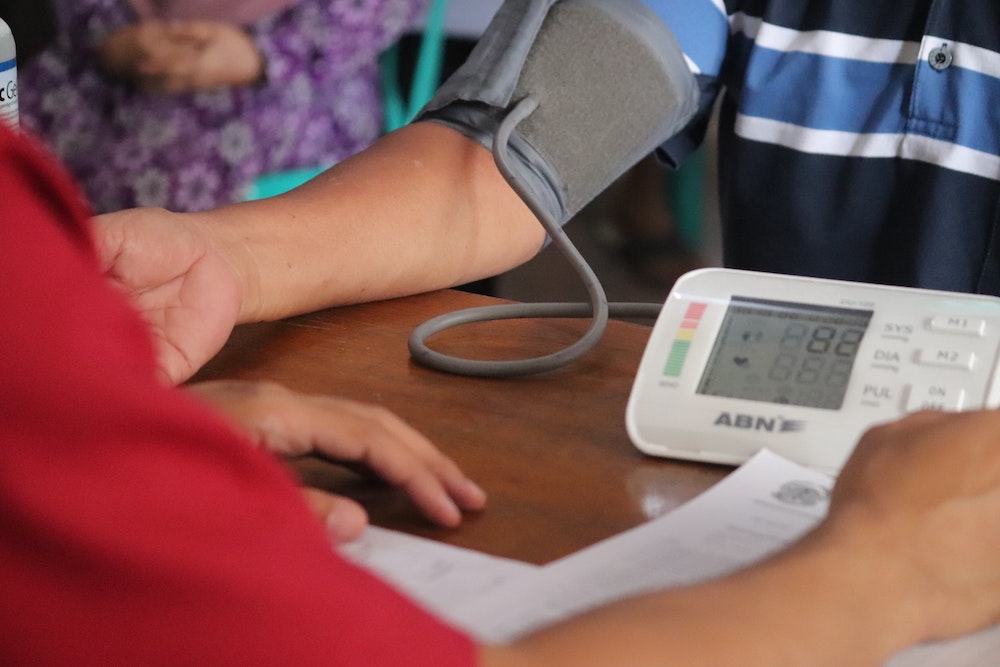Taking care of your health should be a top priority, and one of the most important steps you can take is to regularly check in with your doctor. Regular visits to the doctor can help catch potential issues early on, allowing you to get treatment or make lifestyle changes before it’s too late. But what exactly do you need to be checking for? What are some things that everyone should keep an eye out for when visiting their doctor? We’ll discuss six key things that everyone needs to regularly check with their doctor, from blood pressure readings and cholesterol levels to mental health screenings and more. Read on as we break down everything you need to know about keeping yourself healthy!
1. Blood Pressure and Cholesterol Levels
High blood pressure and high cholesterol are both very common health conditions, and they can lead to serious medical issues if left untreated. During regular visits to the doctor, you should have your blood pressure and cholesterol levels checked as a preventative measure. This will alert your doctor of any potential issues that could be developing, allowing them to take steps to lower these readings and improve your overall health. Your cholesterol levels, apart from many other predictors, can help detect potential health problems that need to be addressed and treated accordingly. Some of these problems can also advance into chronic conditions, such as heart disease or stroke.
2. Urine and Blood Tests
Urine and blood tests are a great way to get a better look at your overall health, as they can provide valuable insight into issues that you may not even be aware of. These tests can help detect diseases or conditions early on, allowing for timely treatment before the problem progresses further. Your doctor may order urine or other laboratory tests if there is any suspicion of medical problems such as diabetes, anemia, kidney disease, liver disease, or thyroid dysfunction. Depending on your age and lifestyle habits, these tests should generally be done once every year or two.
3. Eye Exam
Getting regular eye exams is essential to ensure that your vision is healthy. Eye exams can detect early signs of eye diseases such as glaucoma, cataracts, macular degeneration, and even diabetes. Regular eye exams can ensure that you are wearing the correct prescription glasses or contact lenses to properly correct any vision problems that might be present. Some people develop vision problems or need a change in their prescription glasses or contact lenses as they age, so it is important to have an eye exam every year or two.
4. Mental Health Screening
Mental health is just as important to monitor as physical health, and regular screenings with your doctor will help ensure that your mental well-being is in check. Depression, anxiety, and other mental health issues are incredibly common, but they can often go unnoticed if left unchecked for too long. You should discuss any symptoms or concerns you may have during your doctor’s visits so that they can provide appropriate care and treatment.
5. Skin Cancer Screening
Skin cancer is an incredibly common type of cancer, and it’s important to have regular skin cancer screenings with your doctor. This helps detect any early signs of skin cancer, which can then be treated before the condition progresses further. Your doctor will be able to look for any concerning moles or lesions during a skin check-up, and they may even recommend preventative measures such as sunscreen use or avoiding direct sunlight when possible. Skin tags are common and usually harmless, but if you notice any changes in your skin or suspicious moles, it’s important to have them checked out.
6. Scans
 Scans such as CT or MRI scans can be used to detect any medical problems that may not be visible during a regular physical exam. These tests allow doctors to look at the organs and other body parts in great detail, allowing them to diagnose any potential issues more accurately. Depending on your age and health condition, it may be beneficial to have a scan every year or two. Additionally, these scans can be used to monitor the progress of existing medical conditions or treatments.
Scans such as CT or MRI scans can be used to detect any medical problems that may not be visible during a regular physical exam. These tests allow doctors to look at the organs and other body parts in great detail, allowing them to diagnose any potential issues more accurately. Depending on your age and health condition, it may be beneficial to have a scan every year or two. Additionally, these scans can be used to monitor the progress of existing medical conditions or treatments.
By getting regular check-ups with your doctor and undergoing the necessary tests, you can detect potential health problems that need to be addressed and treated accordingly. Doing so will help ensure that any issues are caught early on and that you remain in good physical and mental health for years to come. And, of course, don’t forget to practice healthy habits such as eating a balanced diet and getting plenty of exercise. Doing so will help you stay at your best for years to come.

